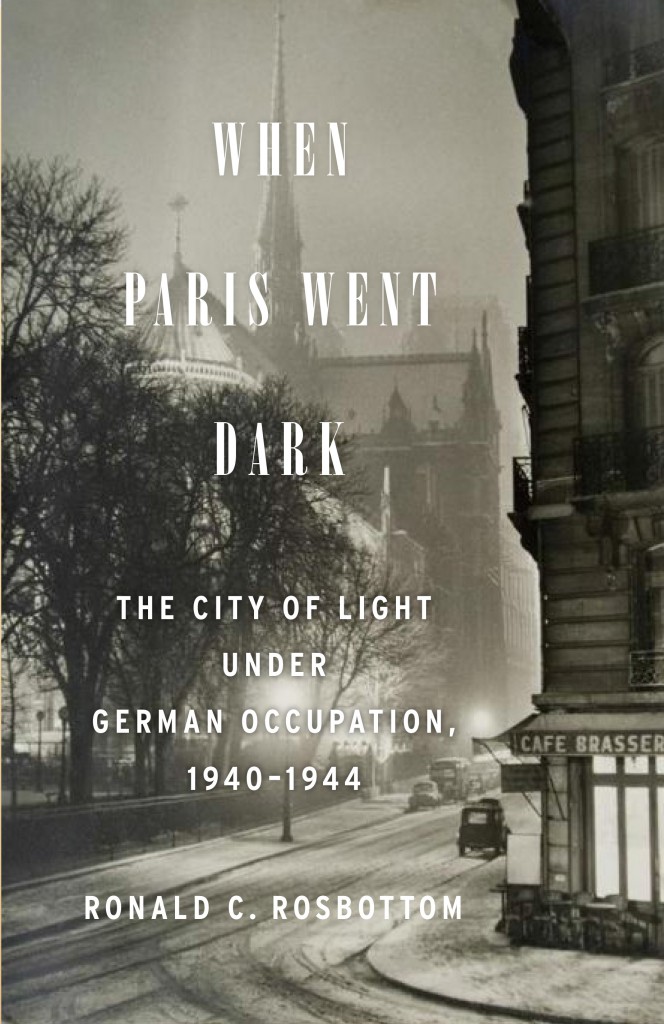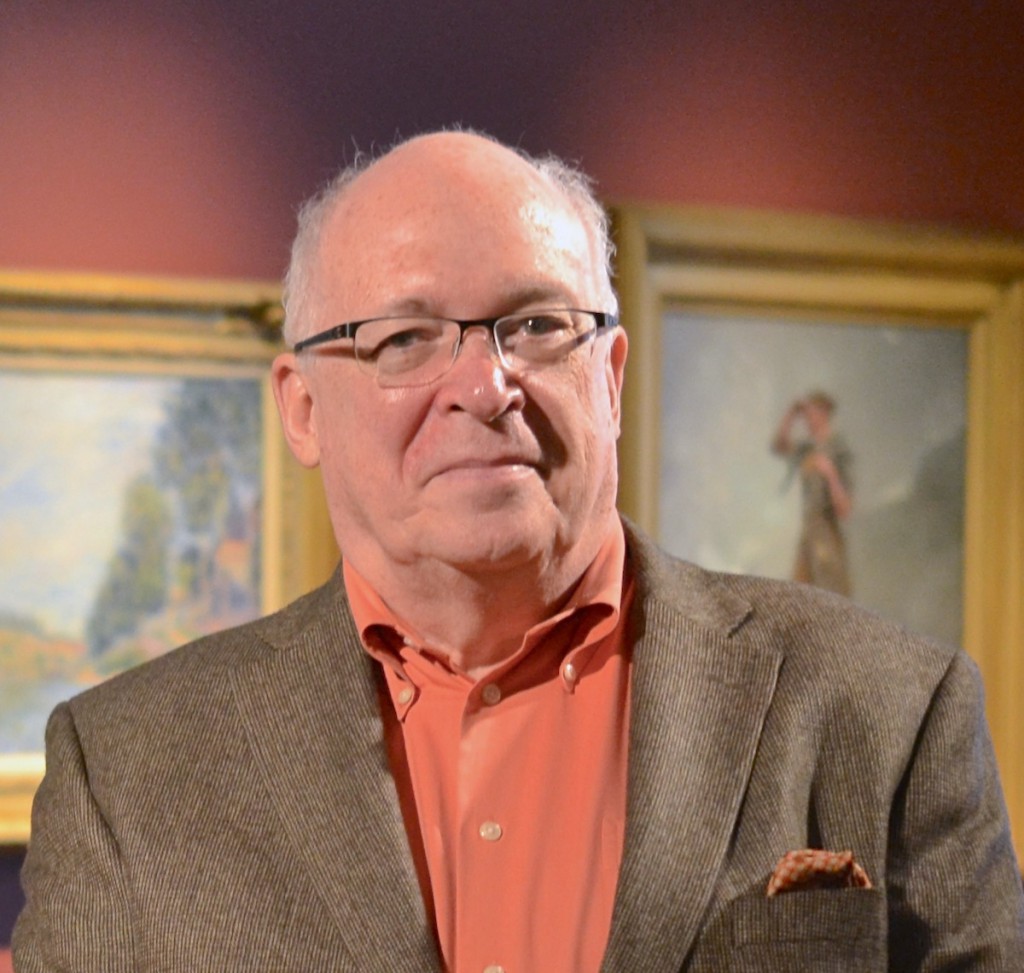Ronald C. Rosbottom’s “When Paris Went Dark” – free book giveaway to 2 subscribers!
19 Tuesday Aug 2014
A Woman’s Paris™ in Book Reviews, Cultures
Tags
Albert Camus, City of Light 1940-944, Colette, Jean-Paul Sarte, Joseph J Ellis Ford Foundation Professor Emeritus Mount Holyoke College, Joseph J Ellis Founding Brothers American Sphinx and Revolutionary Summer, Josephine Baker, Liberation of Paris 1944, Pablo Picasso, Paris under German occupation 1940-1944, Ronald C Rosbottom Amherst College faculty, Ronald C Rosbottom Amherst Massachusetts, Ronald C Rosbottom Romance Languages Department Ohio State University, Ronald C Rosbottom University of Pennsylvania, Ronald C Rosbottom Winifred Arms Professor in the Arts and Humanities professor of French and European Studies Amherst College, Scott Turow Identical, Simone de Beauvoir, Third Reich Paris occupation, When Paris Went Dark Ronald C Rosbottom Little Brown and Company
Share it
 Subscribers, When Paris When Dark: The City of Light Under German Occupation, 1940-1944 by Ronald C. Rosbottom, who is the Winifred L. Arms Professor in the Arts and Humanities and a professor of French and European Studies at Amherst College. Free book giveaway to two subscribers ends August 28, 2014. A $28 U.S. value.
Subscribers, When Paris When Dark: The City of Light Under German Occupation, 1940-1944 by Ronald C. Rosbottom, who is the Winifred L. Arms Professor in the Arts and Humanities and a professor of French and European Studies at Amherst College. Free book giveaway to two subscribers ends August 28, 2014. A $28 U.S. value.
Subscribe free. Once subscribed, you will be eligible to win—no matter where you live worldwide—no matter how long you’ve been a subscriber. You can unsubscribe at anytime. We never sell or share member information.
June 14, 1940, German tanks entered a silent and deserted Paris and The City of Light was occupied by the Third Reich for the next four years. This August marks the 70th anniversary of the Liberation of Paris, perfect timing for Ronald C. Rosbottom’s riveting history of the period: When Paris Went Dark: The City of Light Under German Occupation 1940–1944 (August, 2014; Little, Brown and Company). (Purchase)
Rosbottom illuminated the unforgettable history of both the important and minor challenges of day-to-day life under Nazi occupation, and of the myriad forms of resistance that took shape during that period. Slowly, as the Occupation became increasingly onerous, underground resistance efforts became more and more muscular. Groups and individuals of all stripes—French and immigrant Jews, adolescents, communists, Gaullists, police officers, teachers, concierges, and landlords—endeavored to remind the German authorities that Parisians would never accept their presence. Cultural icons such as Josephine Baker, Picasso, Sartre, de Beauvoir, Colette, and Camus developed their own strategies to resist being overpowered by an invidious ideology.
A decade in the making and unprecedented in its range, When Paris Went Dark is both a thrilling work of history and a subtle, profoundly moral meditation on guilt, innocence, courage, cowardice, and the force of memory.
“When Paris Went Dark recounts, through countless compelling stories, how Nazi occupation drained the light from Paris and how many of its residents resisted in ways large and small. This is a rich work of history, a brilliant recounting of how hope can still flourish in the rituals of daily life.” — Scott Turow, author of Identical
“Ronald Rosbottom has re-created the Parisian world during the dark days of the German occupation like no previous writer I know. His secret is twofold: first, exhaustive research that allows him to recover what we might call the importance of the ordinary; and second, a shrewd grasp of how memory works, often in strange ways.” —Joseph J. Ellis, Ford Foundation Professor Emeritus at Mount Holyoke College, author of Founding Brothers, American Sphinx, and Revolutionary Summer
Excerpt from When Paris Went Dark: The City of Light Under German Occupation, 1940-1944 by Ronald C. Rosbottom. Copyright © 2014 by Ronald C. Rosbottom. Reprinted with permission of Little, Brown and Company (Part One)(Part Two).
 Ronald C. Rosbottom is the Winifred Arms Professor in the Arts and Humanities and a professor of French and European Studies at Amherst College. Previously he was the dean of the faculty at Amherst and the chair of the Romance Languages Department at Ohio State University. He lives in Amherst, Massachusetts. (A Woman’s Paris interview with Ronald C. Rosbottom)
Ronald C. Rosbottom is the Winifred Arms Professor in the Arts and Humanities and a professor of French and European Studies at Amherst College. Previously he was the dean of the faculty at Amherst and the chair of the Romance Languages Department at Ohio State University. He lives in Amherst, Massachusetts. (A Woman’s Paris interview with Ronald C. Rosbottom)
Photo credit: Kane Haffey
A Woman’s Paris® is a community-based online media service, bringing fresh thinking about people and ideas that shape our world and presents a simplicity and style, in English and French.
Connecting with you has been a joyous experience—especially in learning how to enjoy the good things in life. Like us on Facebook. Follow us on Twitter. Share us with your friends.
Barbara Redmond
Publisher, A Woman’s Paris®
barbara@awomansparis.com


4 comments
Janet said:
August 20, 2014 at 6:48 am
Looks like a great read! Looking forward to reading it.
Jacqueline Bucar said:
August 20, 2014 at 4:54 am
In the mid and late 60s when I lived for a short time in Paris with a French family, I heard so many stories about what it was like to live under the Occupation. I still remember those stories today although the elderly couple has since long passed away. The woman, a talented dressmaker who worked in the big fashion houses (Dior etc) was called upon to make the dress of an “important client”. When she was introduced to Mme Goebels, she turned and walked away, refusing to be the one to make the dress. In her small way, she made a statement. They recounted the horror they felt of seeing foreign soldiers take over their city, try to impose their language and usurp their culture. Those stories have stuck in my mind even today so many years later after I heard them. This book sound fascinating.
Sallie Robbins-Druian said:
August 20, 2014 at 1:36 am
This is my seventh week in Paris. August is a strangely peaceful month here for mixed reasons, historically and annually. I have been devouring books about “The Dark Days” and look forward to seeing the photo exhibit at the Hotel de Ville about the Liberation of Paris. The emotional yet riveting full media exhibition at Musee Carnavalet about the Ocupation was horrid and hopeful. Not one attendee had a dry eye. There will be flowers on the walls and streets of Paris August 25th, in remembrance of those individuals who were killed or murdered defending this city and their human rights. I will be here and I will always remember. There will never be enough books written to remind us of this terrible patch of recent history and why history repeats itself. I look forward to adding this new book to my collection.
victoria said:
August 19, 2014 at 9:51 pm
Would love to win this giveaway!